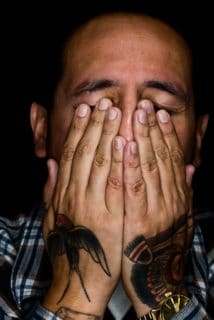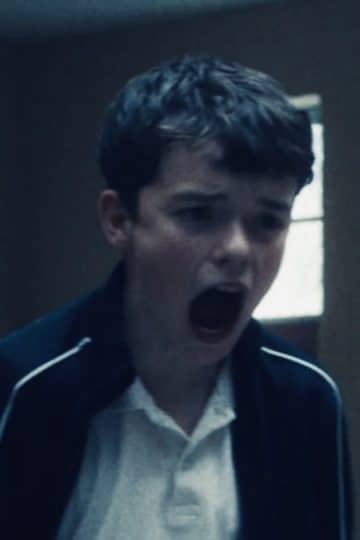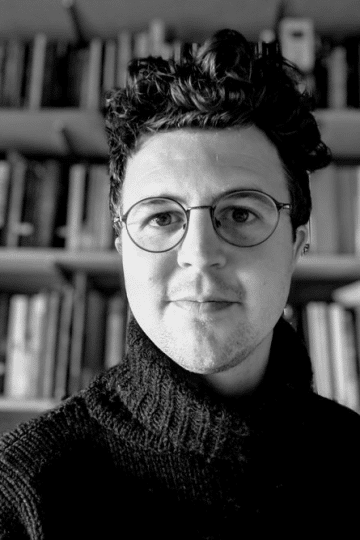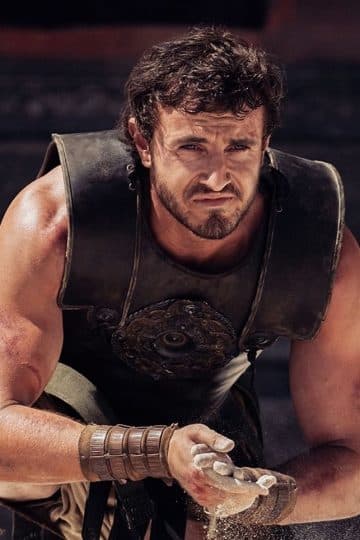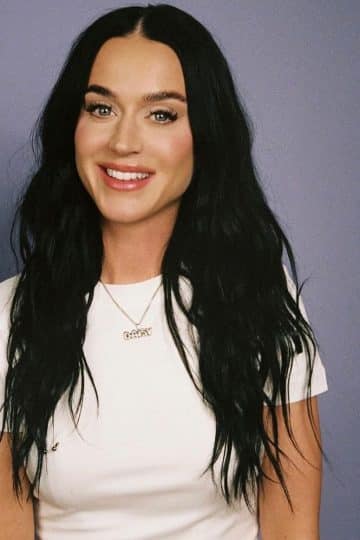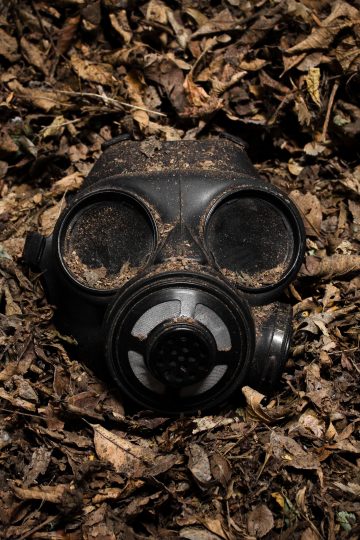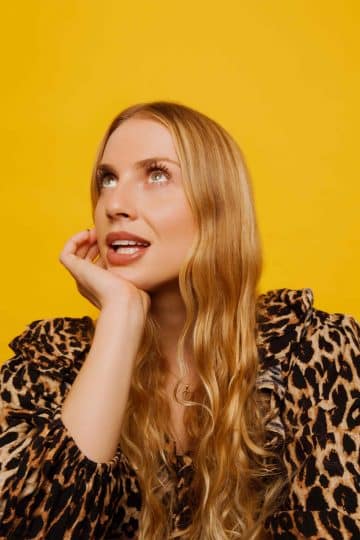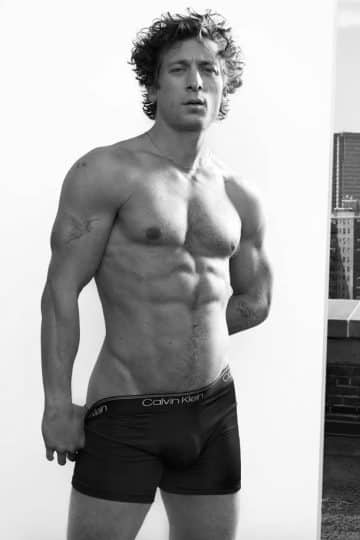Yesterday at The Festival of New Masculinity, a brilliant panel discussed a current time of flux for men, and what positive things may lie ahead.
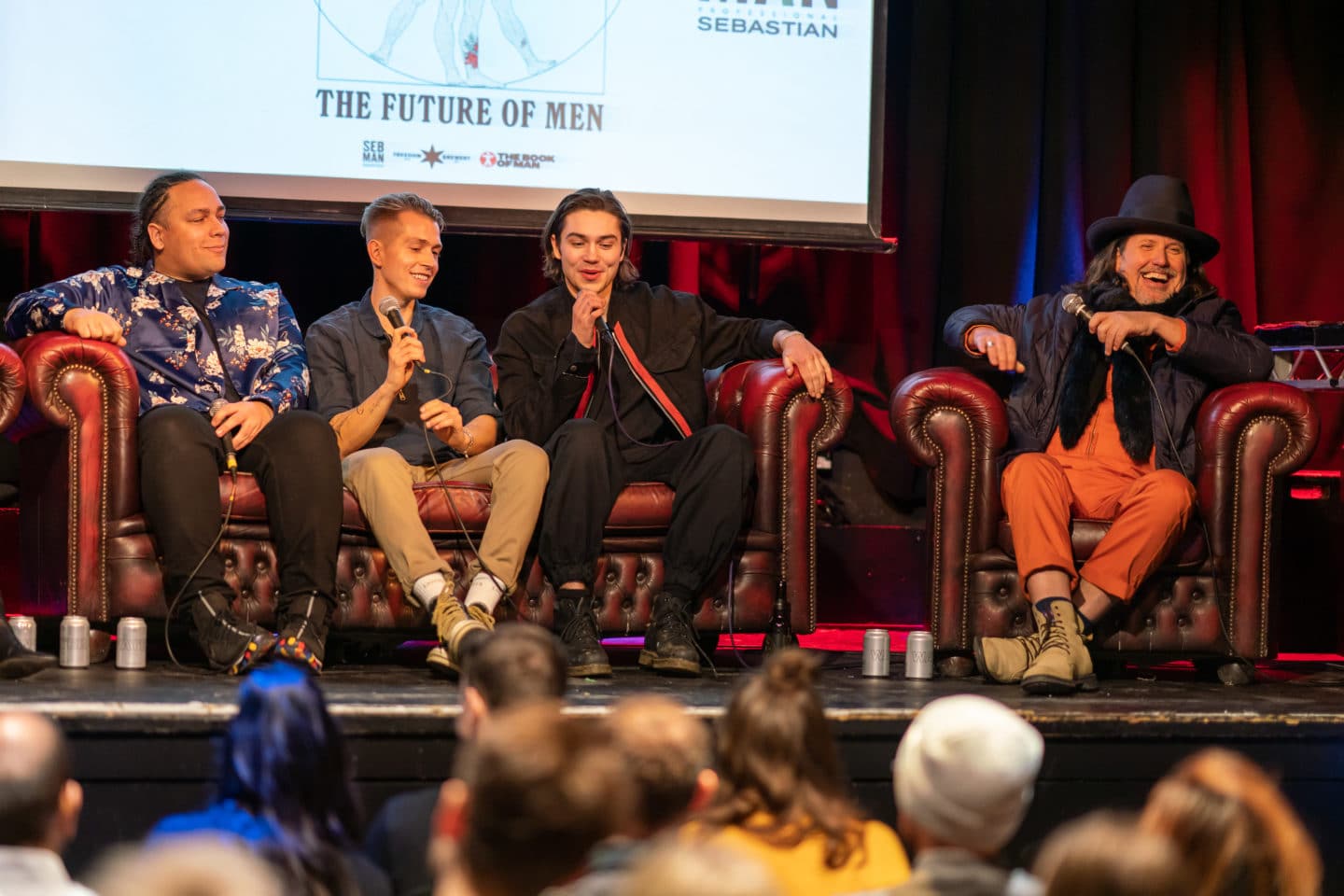
“You wouldn’t have got an event like this, with all these people on a Sunday night, two or three years ago, there’s just no way…”
No way at all, but now things are indeed changing. James Scroggs, the Chair of Trustees of CALM, was right to marvel and we can scarcely believe how these events at The Festival of New Masculinity are going. One, just how well attended they are, but also the level of honesty and spirit of emotional sharing that is emanating from the stages and being reciprocated by the audiences. Discussions around masculinity and male mental health are vital topics which are now truly beginning to take hold all around the world, and no matter what side you’re on in some of these discussions, the fact we’re even talking about them means deconstructions of what it means to be a man are occurring and help is becoming more likely for the men who need it.
At the Hoxton Square Bar & Kitchen last night such ideas were discussed in depth by a panel of James McVey from The Vamps, presenter and musician George Shelley, Deputy CEO of the Diana Award, Alex Holmes, and CALM’s James Scroggs, The event was hosted by author Poorna Bell, who guided the group through conversations on how masculinity is changing, what people can do to help men in crisis, and the new ways in which boys are now being taught at schools. You can read some highlights from the discussion below, and you’ll probably agree with us in hoping that the future of men is exhibited by the fine people up on that stage.
Thanks to the panel, and the audience, and everyone who made it happen, particularly the SuperCulture folk, Freedom Brewery, and our partners, new grooming range SEB MAN, who’s messaging around ‘undefinable’ men are exemplary for the way brands should be working. Thanks all x
On the way masculinity is changing
George Shelley: “I still feel like men today have to follow stereotypes. Provide, protect and procreate – that’s men’s To Do list. I grew up in an all-female household, where I went to bed with a hug and had all this open love. Yet I go to my Dad’s now, and he’s a single parent, bring up four little boys, and I’m seeing my Dad being both the dominant female and the male – it’s interesting seeing how my dad is in their lives, and how he has evolved.
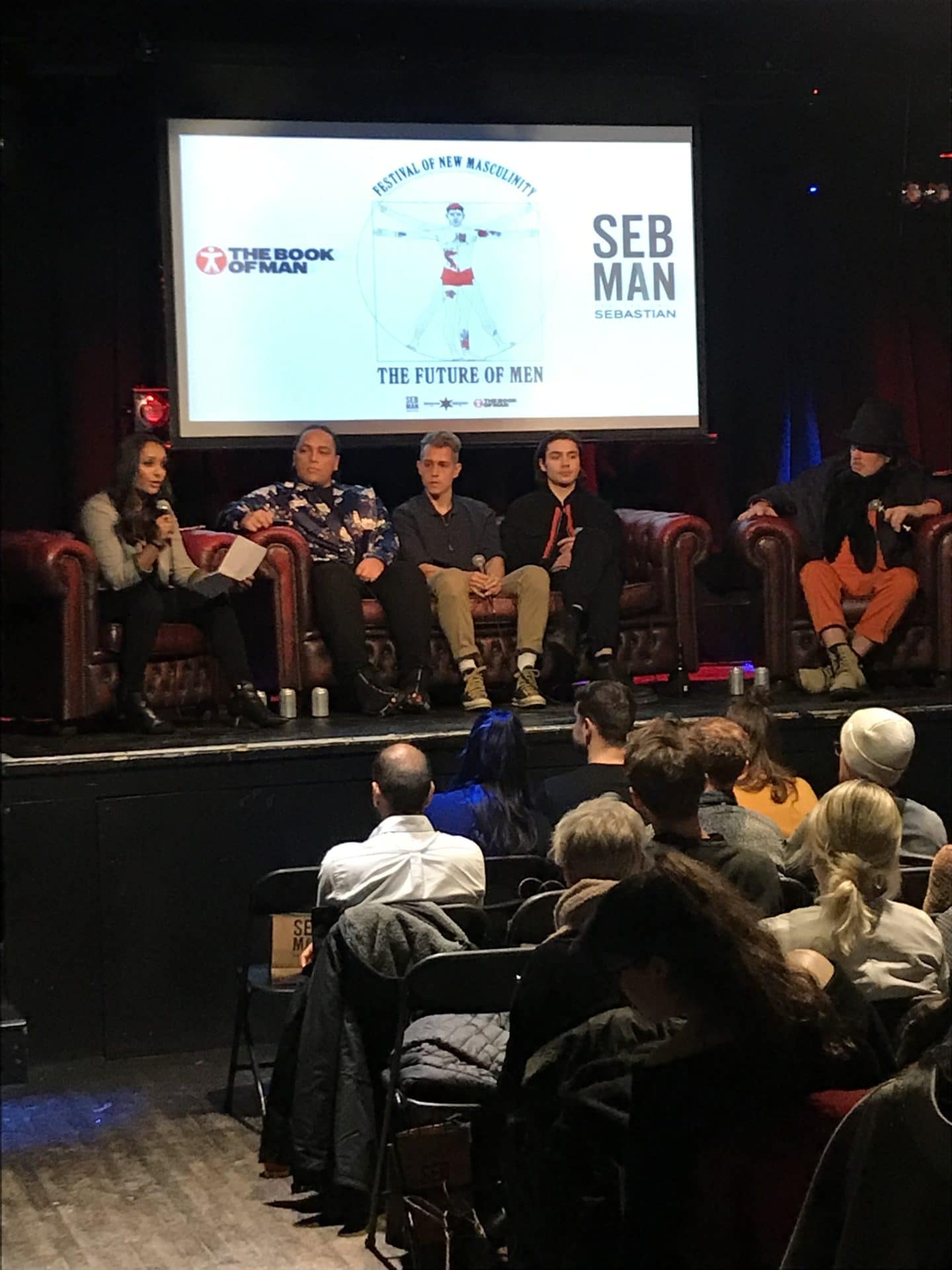
James Scroggs: “I look back at my childhood in a good middle-class family but where there was a divide between my father, who was the stoic provider. He had a pretty horrid childhood from what I can work out, but he wouldn’t talk about it, it was an unmentionable part of his life – he decided he wanted to be the hunter-provider, the classic male stereotype. But on the other hand there was a massive matriarchal presence from my mother. And I look at the world now and think all those things are getting really nicely jumbled up. Matriarchy is shifting, and I think the patriarchy is being broken down bit by bit and the world is beginning to work out that actually both can play a fundamental part in how we live. I have a 13 year-old boy and I cannot wait for him to be at the age where he starts to redefine what power structures look like, what earnings look like, what role he has to play with a male or female partner, because I think it’s all up for grabs. And I think a session like this is a real sign of that.”
James McVey: “When I was 14 or 15 and started making music, I was slightly strange, I had long hair, a pierced nose, and I didn’t really fit into a certain group. I had friends but when I started writing openly emotional songs about girls it wasn’t received particularly well. I grew up in an area of Dorset where it was all about rugby and football, and I liked football, but I liked girls more! But I’d sing about girls and was ostracised for that – people didn’t understand why a 15 year old boy was being openly emotional rather than playing rugby. Now, it’s not so much of an issue. There’s millions of kids on YouTube talking about how they feel – there’s been a shift. As a man I don’t’ feel ashamed as my emotions anymore. In the last 10 or 15 years there’s been a big change.”
Alex: “You spend 11,000 hours of your life at school so it’s a huge amount of time that affects the person you are today. For me, I was mixed race – still am – and gay, and in my classrooms I’d hear the word gay used in a really negative way. ‘My homework’s gay’ or ‘My Xbox was gay last night’. But for the one kid in that class who wasn’t sure of themselves and wasn’t sure if they can talk about their true selves, that’s really damaging.
The old school teachers I used to have, weren’t able to broach these subjects, but we’re going into schools now and kids and teachers are championing it, talking about their feelings, talking about LGBT issues, and I think that’s really powerful because when I was at school I was seen to be different, and I didn’t figure out who I was for a long time. But now I see kids helping each other talk about who they are and accept that that thing that makes them different I actually a strength in disguise.
I think because you’re seeing more of that in the mainstream, and the biggest brands in the world are embracing that, so I think things are really positive, and are changing.
Where there could be more room for improvement is in some of the media that the younger generation consume, because we’re only just at the point where the BBC has appointed an LGBT correspondent and we’re not quite seeing enough diversity, and you have the likes of Piers Morgan who aren’t enabling people to see the other side, and what it means to be young.”
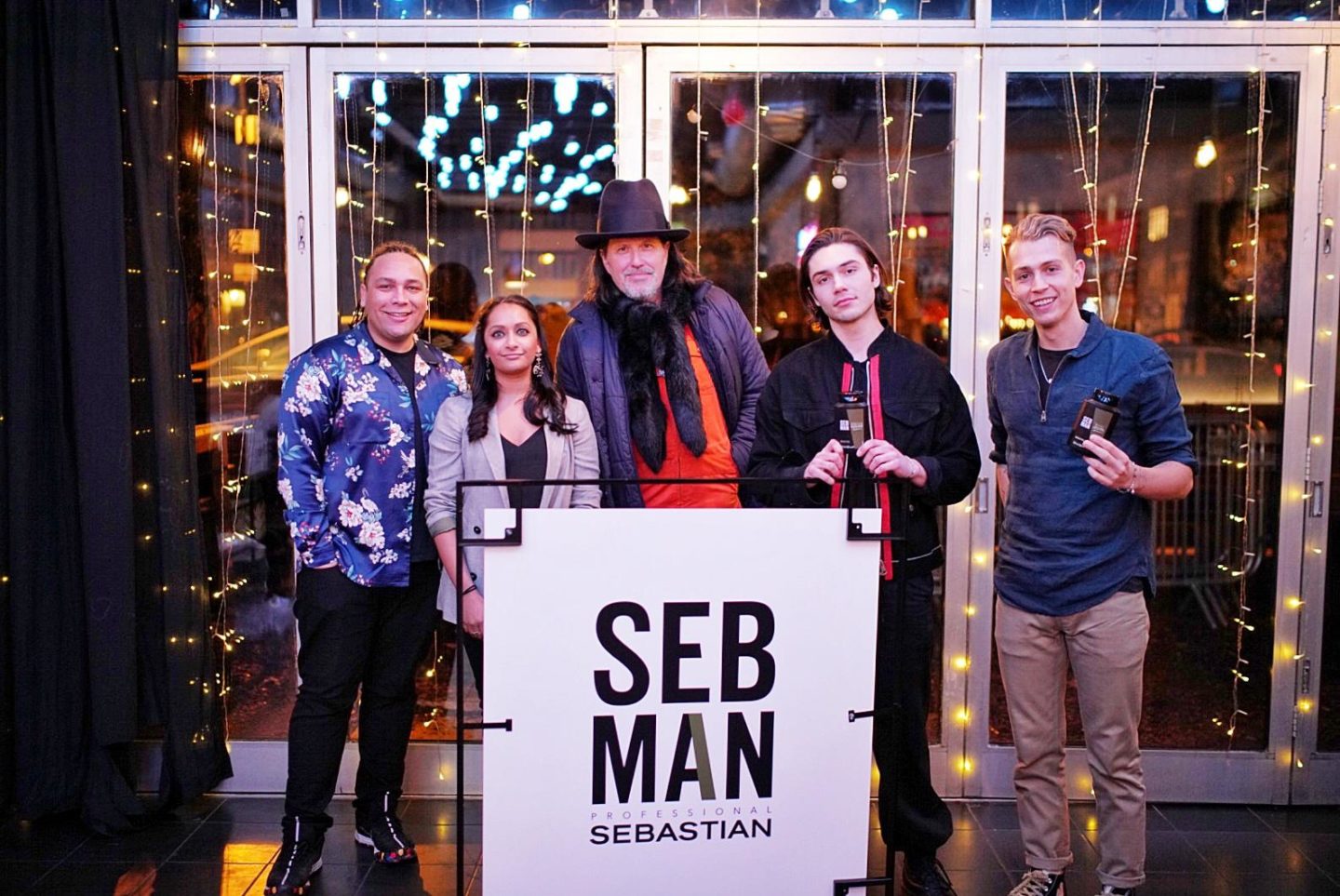
On myths about being a man
James McVey: “I’m 25 but up to the age of 12, the idols I looked up to were soldiers. I wanted to be a soldier, soldiers were cool – why were these role models for our generation? Basically, a lot of boys were taught to suppress how you feel. Actually going into the jungle for me was when I truly let go of everything. It’s strange that show, what you see on screen is very different to how you experience it. When you’re with 10 strangers for 3 weeks there’s a lot of soul searching and I realised after that I let all my walls down. I maybe cried twice in my life before that but I cried every day for 3 weeks there. It was only after I embraced my emotions that I figured out who I was as a person, and to have that revelation at 25 was big for me. It made me realise the difference between the role models I had and the role models future generations are going to have, which will be more rounded.”
George: “Being in a female dominated environment I was always a crier and throughout my career I’ve cried a lot. People have said, ‘Oh man up, stop being a baby, stop being a girl…” I hear my dad sometimes say that to his kids, ‘stop being a girl’ which is really bad because you’re putting them in a box that you have to be in as a boy.
There’s intelligence and then there’s emotional intelligence, where you can figure out what’s going on inside you. We need to be teaching kids that it’s ok to feel, it’s ok to have emotions and communicate it. And I think that’s what’s missing. Kids don’t really understand what they’re feeling and how to communicate their emotions so it just stays in and it gets suppressed. Then it can come out destructively later in life.”
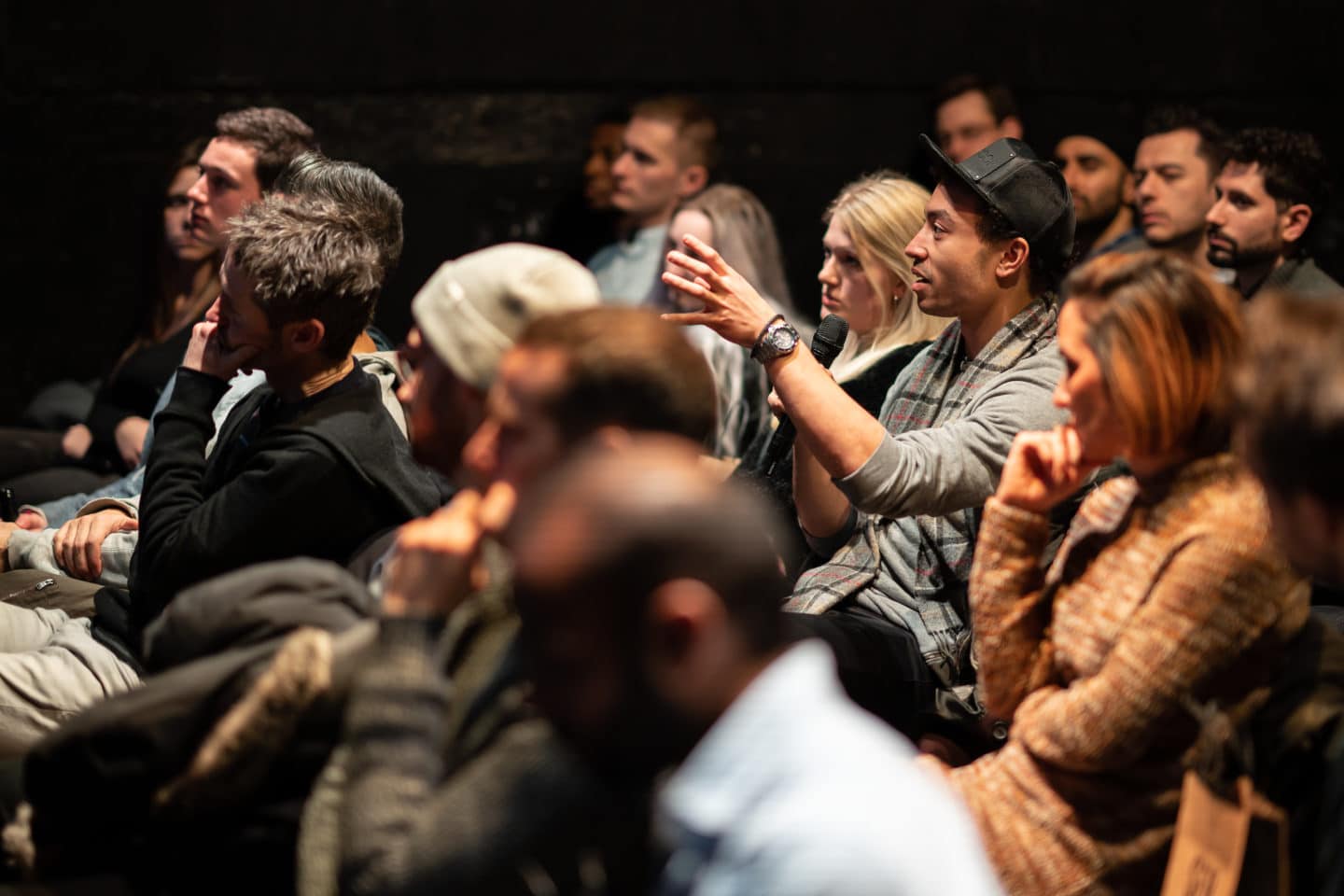
What can we do to help men with their mental health issues?
George: “My dad left home when I was two and a half, and I felt it hard to talk to him – it wasn’t until he had a motorbike accident and losing my sister Harriet, that it changed. My brothers are seeing my dad now speak openly and honestly about this, and it’s really powerful to see that. He’s teaching them not to be embarrassed about who they are. And it’s sweet for my brothers to see a dad isn’t just at work, he does laundry, cooks, cleans the toilet – he has flourished in the last 2 years.”
James Scroggs: “If a woman’s having a tough time in the office she’ll be surrounded by a group of people, who she maybe doesn’t know very well, but there’ll be a kinship, as they try to solve her issues or whatever she’s going through, whereas if a guy in the workplace is found in tears at his desk the chances are HR will be escorting him from the building.
I think that’s changing fundamentally right now. We’re engaged with lots of big and small businesses who are trying to change that culturally in their business.
For men it’s not just about speaking out and opening up because there’s a lot of men who are resistant to that, and being that kind of emotional person. But having a network of people who are going to surround you and help you with the issues that are going to get you to the point of mental distress and crisis, is absolutely fundamental. Since the mental health revolution, which we’re still in, we’re now in a moment where men are realising that if they send each other a text a couple of times a week, it just gives people a chance to offload. And I think that level of male counsel is really powerful. And palpable at the moment. It’s very real and it wasn’t here a few years ago.”
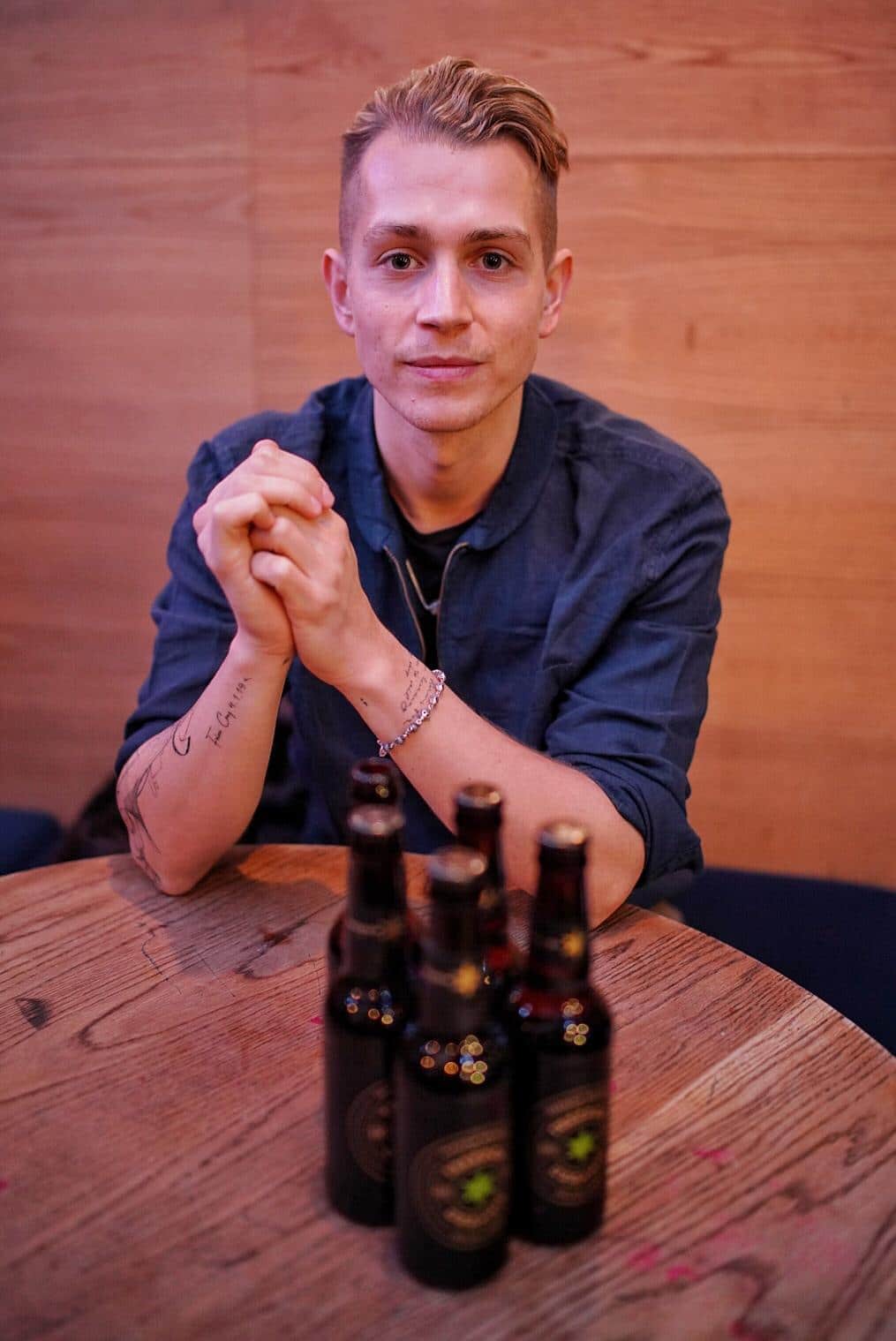
James McVey: “I’m in a band and have been for 8 years and we were very lucky that our first song went to number two and we sold out our first 4 tours – it was up and up. But then that levelled off for me and I realised I got quite lonely. It sounds bizarre, when I was touring the world with 3 of my best mates – and I was in a position where any thought that it wasn’t amazing was seen as, ‘Oh what’s he on about, he’s a celebrity, everything must be great’ and showing any sign of weakness or that I wasn’t enjoying it wasn’t an option.
Since meeting Kirstie things have changed – we’re now engaged and she’s been there for years for me, and I’m able to share my experiences with someone. Before meeting Kirstie I was doing all these things with the guys and it was great but I couldn’t say to them, ‘I’m not really enjoying this,’ That was really really tough.
Nothing against the fans but when every day your life is on a screen, and you’re jetlagged, and under constant pressure, being in that position really affected me.
I grew up quite a shy boy who was catapulted into this world of The Vamps, which I’m eternally grateful for, but we went from a small town in Dorset to selling out The 02. You can’t predict how it feels until you’re there and obviously it’s really amazing, but having someone there when you are struggling like Kirstie really helped.
A lot of us guys suppress how we’re feeling and even a slight bit of unloading is really helpful. I nearly left the band a couple of years ago. I’d been hiding my emotions for ages and it took a step to get through it, which was Kirstie saying, speak to the boys, speak to Brad the singer about it. I was scared to say anything to him, but I think opening the door to other people really helped me as a man. To succeed in that and embrace that it’s fine to feel a bit shit sometimes, and knowing I have that support network around me is really really important. Kirstie has a group chat where she’s talking to her mates every day but most men don’t have that. I’m not saying we should have that, but it’s good to every now and then have a chat with your mate and ask how they’re doing…A lot of us guys are scared to fail, and having someone there to talk you through it so important.”
Poorna: “From my experiences of trying to help the men in my life, especially my late husband, there is a point at which you can’t help them because that is their own relationship with how quickly or easily they can access their own emotions – however it’s just about being there and a lack of judgment and just being the person who they can talk to about their stuff. As a woman I would love to say I could come up with the perfect response that would emancipate a man from the shackles that are holding him back, but that’s not how it works. I’ve been brought up with the same stuff, and I’ve learned to hard way that you have to just go out for dinner or a drink, put the flag up and say I’m here if you want to talk. They may not take you up on that straight away, but they might further down the line.”
James Scroggs: “I’m a massive believer in active listening. Which isn’t saying much but is about providing a space for someone to start unloading. The other thing is the average person in distress doesn’t need sympathy they need empathy. Empathy is a practical thing where you help them or put them with people who can help them. Particularly with men, you need to deconstruct it. We have a motto at CALM, which is that suicide is a permanent solution to a temporary problem. Because the average man gets to a point where there’s no solution, and actually suicide for a certain type of man feels deeply rational. Yet if you can deconstruct some of the rational problems that have got them to that point, it all goes away quite quickly. And so I think active listening, rationality and showing empathy are really important.”
The Festival of New Masculinity is running throughout February and March.
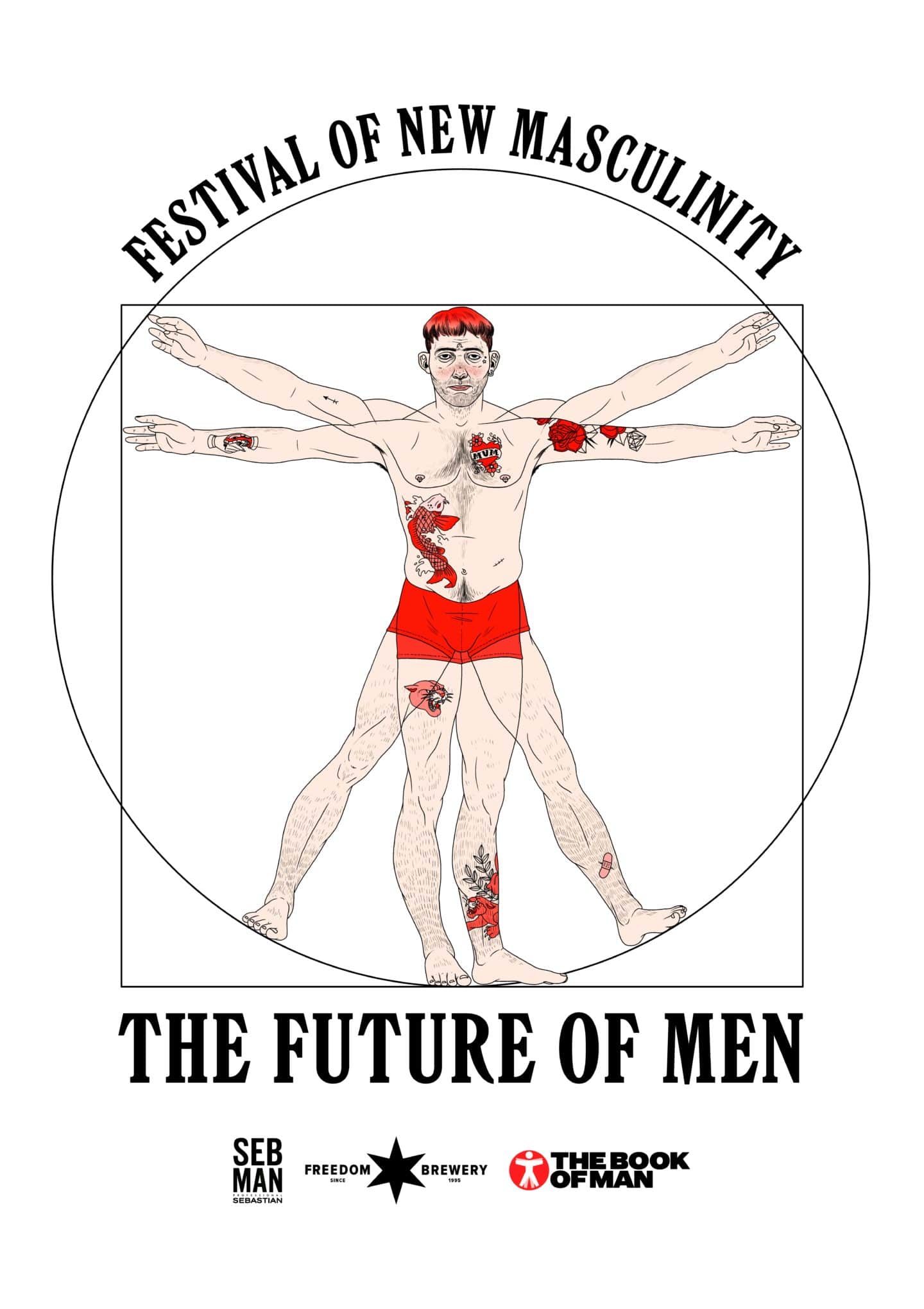

Join The Book of Man
Sign up to our daily newsletters for the latest on The Festival of New Masculinity and the best of The Book of Man

Join The Book of Man
Sign up to our daily newsletters to join the frontline of the revolution in masculinity.







